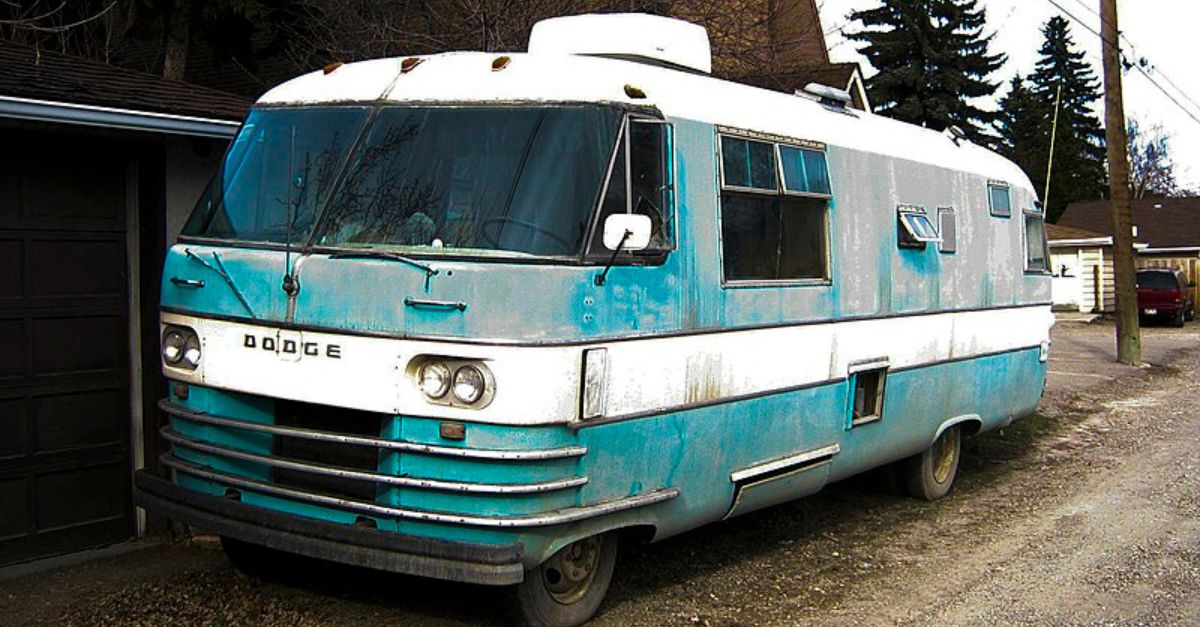Is It A Lost Cause?
Nothing feels better than taking a worn-down machine and changing it into a show-stopping masterpiece for a car enthusiast. But when should you walk away and know that your project car is nothing but a financial strain or personal burnout?

Endless Budget Overruns
You started with a budget in mind, but somehow, the expenses spiraled out of control. When the unforeseen mechanical issues and underestimated costs for parts and labor drain your wallet, it's time to pause. To avoid this next time, create a detailed budget with a buffer for surprises.
 Photo By: Kaboompics.com, Pexels
Photo By: Kaboompics.com, Pexels
Constant Mechanical Failures
It feels like you're playing a game of whack-a-mole—fix one issue, and two more pop up. Persistent mechanical problems often occur when a car has deep-seated issues like engine wear or previous botched repairs. Prioritize addressing major mechanical issues before moving on to aesthetics or minor upgrades.
 Jose Ricardo Barraza Morachis, Pexels
Jose Ricardo Barraza Morachis, Pexels
Parts Are Impossible To Find
The thrill of owning a rare car can quickly fade when you realize essential components are unavailable or priced like gold. Some project cars are so obscure that even hunting down a replacement bolt feels like a scavenger hunt. This challenge stems from discontinued parts and limited aftermarket support.
 Jose Ricardo Barraza Morachis, Pexels
Jose Ricardo Barraza Morachis, Pexels
You Dread Working On It
What if the project you enjoyed so much now feels like an obligation you can't escape? This shift can happen for many reasons: burnout, overwhelming challenges, or simply losing sight of why you started. When the project becomes a source of stress rather than joy, it's a sign to take a step back.
You're No Longer Excited About The Final Result
One of the biggest motivators for working on a project car is the vision of the completed masterpiece. But what if the car doesn't look like what you've imagined? If that excitement fades and you are indifferent about the car's future, it's a red flag.
 30+ year old project cars; never know what you'll find by PrizzaMike
30+ year old project cars; never know what you'll find by PrizzaMike
It's Taking Over Your Life
Your project car has become the center of your universe—and not in a good way. Missed family events and forgotten hobbies are clear indicators that the car has taken up too much space in your life. Remember, a project car is meant to enhance your life, not consume it.
 Building Our Dream Car: 1 year in 30 Minutes! (Project Jigsaw) by Crucible Coachworks
Building Our Dream Car: 1 year in 30 Minutes! (Project Jigsaw) by Crucible Coachworks
You're Out Of Space
When your garage or driveway looks more like a scrapyard than a workspace, it's a clear sign the project has overstepped its bounds. Lack of space often happens when a project car requires extensive dismantling or when you accumulate too many parts and tools.
No End In Sight
This can happen when no clear plan or unforeseen setbacks constantly derail progress. The result? A car that looks as incomplete today as it did a year ago. Create a realistic timeline with specific milestones and goals to avoid this fate.
 Building Our Dream Car: 1 year in 30 Minutes! (Project Jigsaw) by Crucible Coachworks
Building Our Dream Car: 1 year in 30 Minutes! (Project Jigsaw) by Crucible Coachworks
Safety Concerns
Extensive rust and structural damage can make your vehicle a hazard on wheels. Attempting to salvage a car with these issues can quickly become a black hole of time and money. If your current project has become unsafe, weigh the cost of repairs against the car's value.
Your Skills Aren't Enough
It's one thing to tackle a project car to learn new skills, but it's another to dive into tasks that are way beyond your expertise. Are you constantly hitting walls because you lack the necessary knowledge or tools? Frustration will likely follow because your ambition exceeds your current capabilities.
The Car Doesn't Suit Your Driving Style
Midway through a project, you might realize that the car won't deliver the driving experience you're after. Whether it's too slow or uncomfortable, forcing a misaligned vision rarely ends well. This happens when the excitement of ownership overshadows practical considerations.
 Building Project Cars with Friends by PrizzaMike
Building Project Cars with Friends by PrizzaMike
Rust Is Winning
Rust occurs when a vehicle has been exposed to harsh weather or poor storage conditions. A small patch can quickly spread and compromise the car's structural integrity while making repairs expensive. If you're battling rust everywhere you look, it's a sign the car might be too far gone.
The Build Is Becoming A Frankenstein
Is your project car looking like a mismatched collection of parts from various vehicles? Piecing together a car with incompatible components can lead to functionality issues, and the aesthetic outcome may leave you feeling dissatisfied. This happens when desperation for parts outweighs proper planning.
 Building Project Cars with Friends by PrizzaMike
Building Project Cars with Friends by PrizzaMike
Your Partner Is Over It
If your project car is affecting your relationships, it's a red flag. Time, money, and energy poured into the car can lead to neglecting loved ones and often causes tension or resentment. Always set clear boundaries on the time and money you'll dedicate to the project.
The Car Is Too Rare
While rare cars can be incredibly rewarding projects, they often come with unique challenges. Limited production numbers mean parts are scarce, and expert knowledge may be unavailable. If you're working on a rare car, ensure you have access to parts suppliers and a community of enthusiasts who can guide you.
 Ferrari 250 GTO Replica Build Project Trev's Blog part 2 by Trev's Blog
Ferrari 250 GTO Replica Build Project Trev's Blog part 2 by Trev's Blog
You're Just Chasing Trends
Building a car to impress others or chase popularity leads to a disconnect between you and the project. Instead, focus on building a car that aligns with your long-term interests and tastes. Trends come and go, but a car that truly resonates with you will hold its value over time.
 30+ year old project cars; never know what you'll find by PrizzaMike
30+ year old project cars; never know what you'll find by PrizzaMike
You're Not Learning Anything
Project cars are usually opportunities to learn new skills and gain mechanical knowledge. However, when you're outsourcing all the work, the tasks become repetitive, you're no longer learning, and the project has plateaued; it may feel like a chore rather than an adventure.
You're Doing All The Work Alone
Tackling a project car solo can be rewarding, but it can also lead to burnout and isolation. Without help, tasks can feel overwhelming, and the lack of collaboration might sap the fun from the process. This happens when friends or family aren't as invested in the project as you are.
It's Compromising Your Career
Lost productivity and missed deadlines can happen if you're spending too much time working on your car. This might be the sign it's time to let go of your project. Your project car should be a hobby and should never affect your career.
The Market For The Car Has Tanked
Research market trends before starting and focus on cars with lasting appeal. If the car you're working on has significantly dropped in value or fallen out of favor with collectors, it might be time to reevaluate your investment. Ask yourself if the joy of the build outweighs the financial loss.
You Keep Buying Cars Instead Of Finishing One
It's always tempting to start fresh with a new ride, but this habit often leads to a garage full of half-finished cars and no real progress. The car collector syndrome happens when you're picking a new project without completing the current one.
 30+ year old project cars; never know what you'll find by PrizzaMike
30+ year old project cars; never know what you'll find by PrizzaMike
It's Hurting Your Health
Is working on your project car causing physical strain or injuries? Long hours in awkward positions and exposure to fumes will take a toll on your health, especially when safety precautions are ignored. No car is worth compromising your health.
You Can't Find A Reliable Mechanic
Seeking professional help is essential when you're relying on critical aspects of the build. But what if you can't find someone trustworthy? Look for mechanics and shops before starting your project and build relationships with trusted professionals. If you're stuck, reach out to car clubs or online communities for recommendations.
The Wiring Is A Complete Disaster
Electrical systems in older cars can become a nightmare, especially if previous owners have hacked together fixes or installed subpar aftermarket parts. When you're constantly chasing electrical gremlins, it's easy to feel defeated. If the wiring is too far gone, consider whether the time and expense are worth it.
The Car Was A Flood Victim
Flood-damaged cars can hide a multitude of issues. These include rust, mold, broken parts, and severe electrical failures that make the car difficult and sometimes impossible to repair. You may find yourself battling endless problems that make the car unsafe or unreliable.
The Engine Is Irredeemable
While engine rebuilds are common in project cars, there's a limit to what can be salvaged. If the engine block is cracked and essential internal parts are missing, the engine may not be worth saving. This typically happens with neglected or high-mileage engines.
It's Too Expensive To Insure
Weighing the financial burden against the car's value to decide whether to proceed should be a top priority. Classic or heavily modified cars often require specialized insurance, which can be costly or difficult to obtain. It's recommended you ask about insurance terms before you start the project to avoid frustrations.
The Paint Job Is A Money Pit
Adding your personal touch to the paint sounds interesting until you realize that painting a car is one of the most expensive steps in a restoration project. It becomes more expensive if the bodywork requires extensive prep. DIY painting can solve the problems if you have the required skills, though.
 Car Painting: Full Car Paintjob Guide by Paint Society
Car Painting: Full Car Paintjob Guide by Paint Society
The Project Is Taking Too Long
When months turn into years, and the car is still in pieces, it's easy to feel overwhelmed and discouraged. Long timelines often result from underestimating the work and budget constraints to make you lose interest. Break your project into manageable phases and set realistic deadlines to stay motivated.
 Final Re-Assembly of Her TOTALED Dream Car Build!! by itsjusta6
Final Re-Assembly of Her TOTALED Dream Car Build!! by itsjusta6
The Car Doesn't Fit Your Needs
We all change, and when your project car no longer aligns with your lifestyle or priorities, it's time to say goodbye. For instance, a two-seater sports car might not be practical if you need a family vehicle after having a newborn. Life happens, and we adapt.
 Building Our Dream Car: 1 year in 30 Minutes! (Project Jigsaw) by Crucible Coachworks
Building Our Dream Car: 1 year in 30 Minutes! (Project Jigsaw) by Crucible Coachworks
Safety Standards Are Unattainable
Back in the day, safety standards were much more lenient. As a result, restoring an old car to meet modern requirements can be costly and complex. If your project car requires significant upgrades to make it safe—like airbags or reinforced structures—it might exceed your expertise or budget.
 Avoiding airbag injuries by IIHS
Avoiding airbag injuries by IIHS
You're Overwhelmed By Regulations
Do some research before working on an imported, old, or heavily modified vehicle. Custom-built cars often face legal hurdles like emissions compliance, title issues, or registration challenges. Getting tangled in red tape and being unsure how to proceed will derail your progress.
The Interior Is Beyond Saving
A car's interior can be as costly and challenging to restore as its exterior. If the upholstery and trim are irreparable, it might be time to reconsider the project. Interiors suffer from neglect or rodent infestations, which can make repairs difficult or impossible.
Fuel Efficiency Is Questionable
If your project car turns out to be a gas guzzler, it can become a financial and practical burden. Older or high-performance vehicles often have poor fuel efficiency, which can be hard to improve. Research the car's fuel economy and consider whether upgrading to a more efficient engine is feasible.
The Finished Car Falls Short Of Your Expectations
After months or years of work, realizing the car doesn't meet your needs or expectations can be disappointing. Perhaps it's not as comfortable or fast as you imagined. Clearly define your goals for the project early on and revisit them throughout.
 My Sister Got her Dream Project Car!!! By Tony Castillo
My Sister Got her Dream Project Car!!! By Tony Castillo
Time And Money Could Be Better Spent Elsewhere
Is your restoration project draining your resources without much rewards? Sometimes, it's time to consider if you could use your money, energy, time, and skills more effectively. This could be a more rewarding hobby or a better investment, depending on your situation.
A Major Life Change Redirects Your Focus
New jobs, family responsibilities, moving, or financial shifts can change your ability to restore a project car. These changes can make continuing the project unrealistic or unimportant. Recognize when circumstances no longer support your passion, and remember you can always return to your hobby when the time is right.
The Car's History Is A Mystery
Was your vehicle involved in a serious accident? How long has it been sitting in a garage? A project car that comes with too many secrets will be difficult to work with. Unclear ownership records and a mismatched VIN are a big red flag.
The Community For Your Car Is Nonexistent
A vibrant community is a lifeline for advice and parts sourcing. But if your car is a niche model with little fanbase or support, you might find yourself isolated in your efforts. Without forums or experts to consult, even simple tasks like finding wiring diagrams can become draining.
The Car Was Poorly Modified By A Previous Owner
Inheriting someone else's customization vision can be a nightmare, especially if the modifications were done poorly or without proper planning. You might struggle with misaligned body kits, hacked wiring, or mismatched engine swaps can lead to a host of problems.
The Project Feels Like A Full-Time Job
Unless restoring old cars is your real job, a project car shouldn't be a source of stress that consumes all your free time. If you're always overwhelmed by the sheer volume of work with no fun involved, it's time to stop or at least take a break.
 Building Our Dream Car: 1 year in 30 Minutes! (Project Jigsaw) by Crucible Coachworks
Building Our Dream Car: 1 year in 30 Minutes! (Project Jigsaw) by Crucible Coachworks
You're Constantly Postponing Progress
Procrastination often happens when you're unsure how to tackle a particular challenge or when enthusiasm wanes. When a project car sits untouched for long periods, it often reflects a deeper lack of motivation or priority. Ask yourself if there's something more important to do.
The Car Has A Bad Reputation
Some cars are infamous for their unreliability or mechanical flaws that make restoration a constant uphill battle. Models with notorious issues—like overheating engines or chronic rust problems—can drain your wallet and patience. This is why researching a car's reputation before committing is essential.
The Car Has Become A Storage Shelf
If your project car has turned into a glorified storage unit holding tools and random junk, it's a clear sign that progress has stalled. This typically happens when motivation dwindles, and the car becomes less of a priority. A cluttered workspace can also make it harder to restart the project.
 Jose Ricardo Barraza Morachis, Pexels
Jose Ricardo Barraza Morachis, Pexels
The Car's Condition Is Too Bad
Yes, project cars aren't always in good shape. However, sometimes a vehicle would take a monumental effort to restore. It might not be worth the time, money, or energy if it's missing important components or the existing ones are useless. Always be realistic about work required.


































